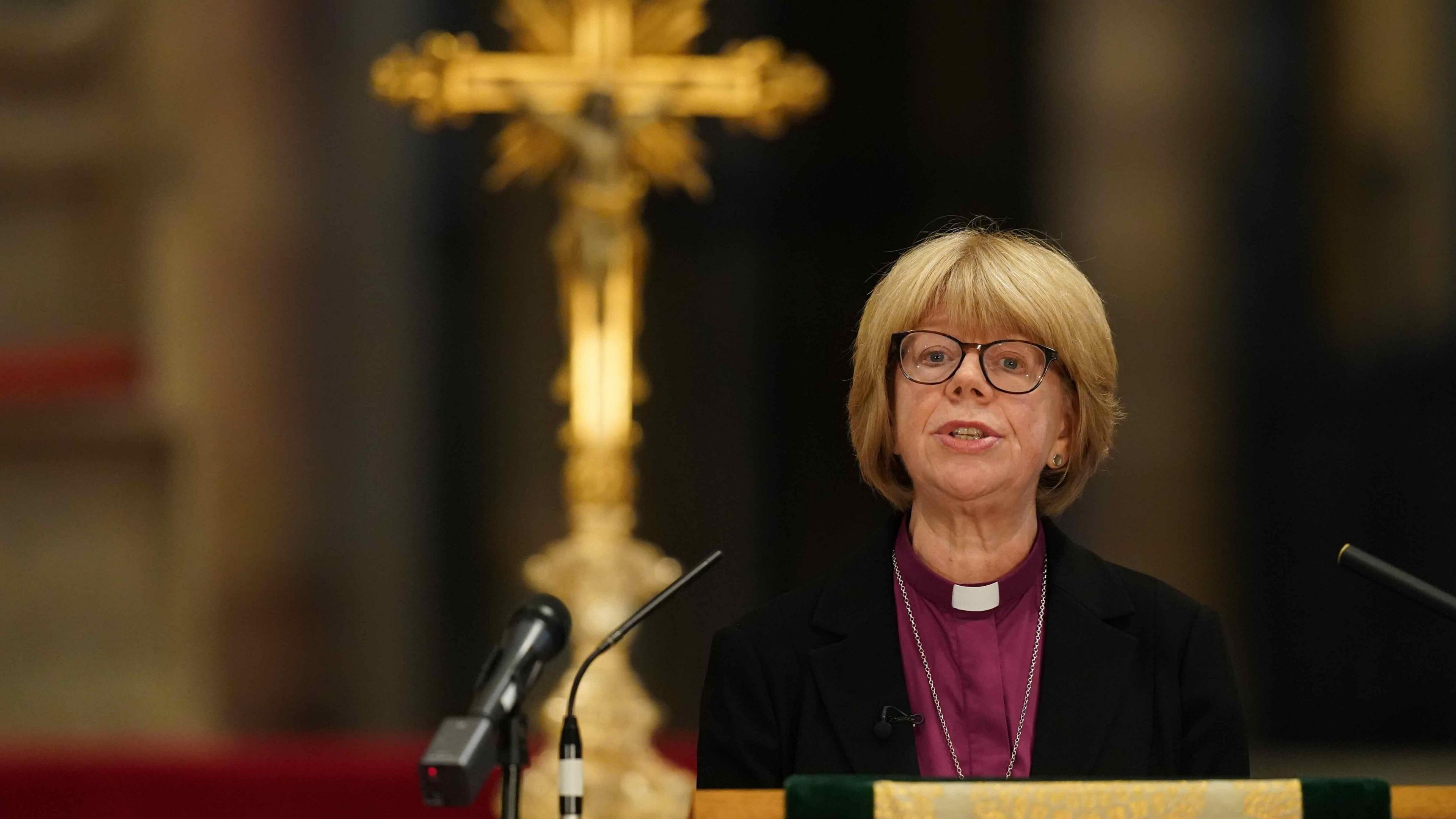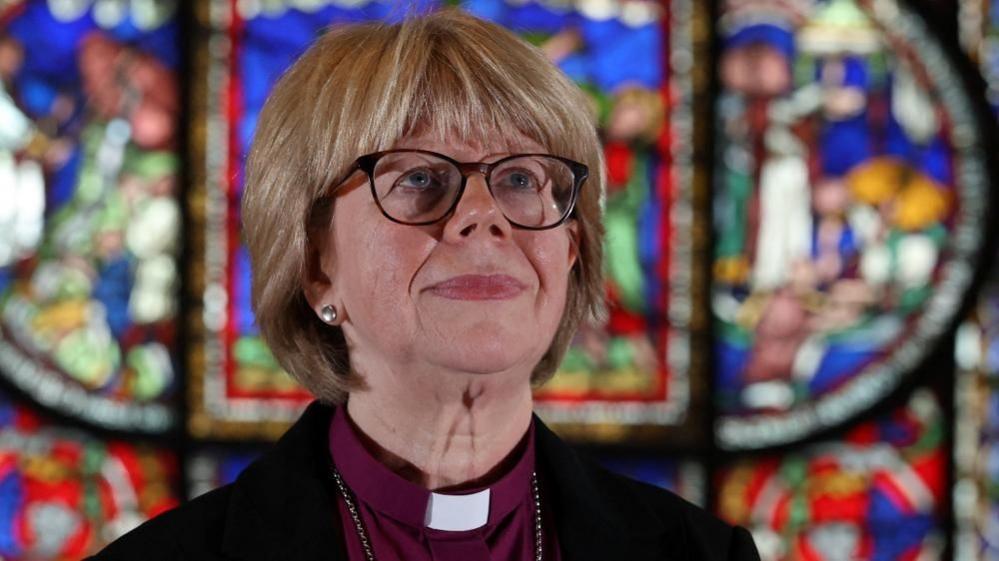Sarah Mullally named as new Archbishop of Canterbury
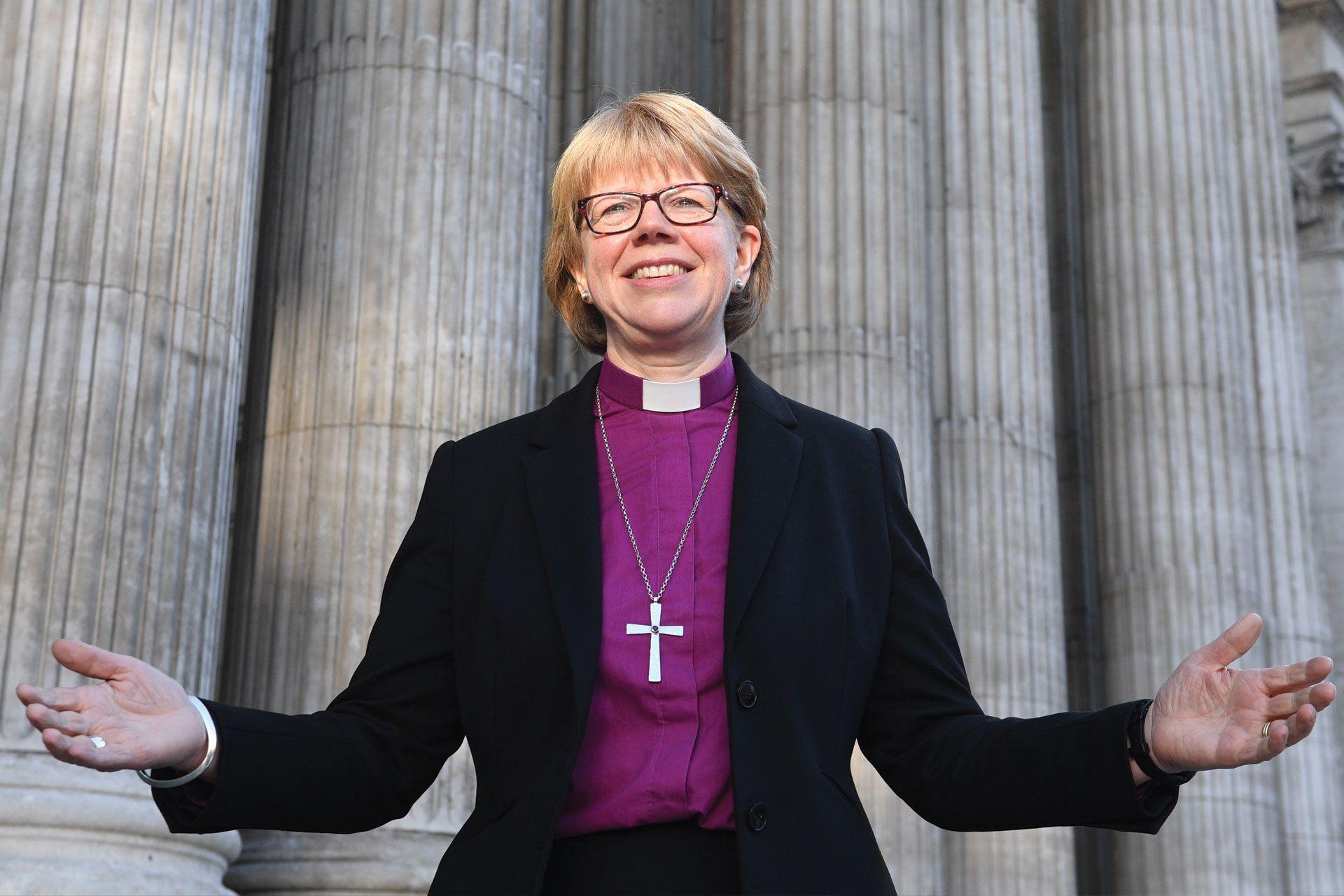
- Published
Dame Sarah Mullally has been named as the new Archbishop of Canterbury designate - the first woman to be chosen for the role.
A former NHS chief nurse, the 63-year-old became a priest in 2006 and was appointed as the first female Bishop of London in 2018 - the third most senior member of clergy in the Church of England.
She used her first public statement on Friday to condemn the "horrific violence" of Thursday's deadly attack on a synagogue in Manchester, saying "hatred and racism cannot tear us apart".
The Church has been without someone in the top job for almost a year after Justin Welby resigned over a safeguarding scandal.
He stepped down after a damning report into a prolific child abuser associated with the Church. It found that he "could and should" have reported John Smyth's abuse of boys and young men to police in 2013.
Archbishop of York Stephen Cottrell took on most of Mr Welby's responsibilities in an interim move, and was one of the voting members of the body charged with choosing his successor. He himself has faced calls to step down over his handling of an abuse case.
Women were first ordained priests in the Church in 1994, while the first female bishop appointments followed 20 years later in 2014
In line with tradition, the process of choosing a new archbishop involves a name being given to Prime Minister Sir Keir Starmer and then passed to the monarch.
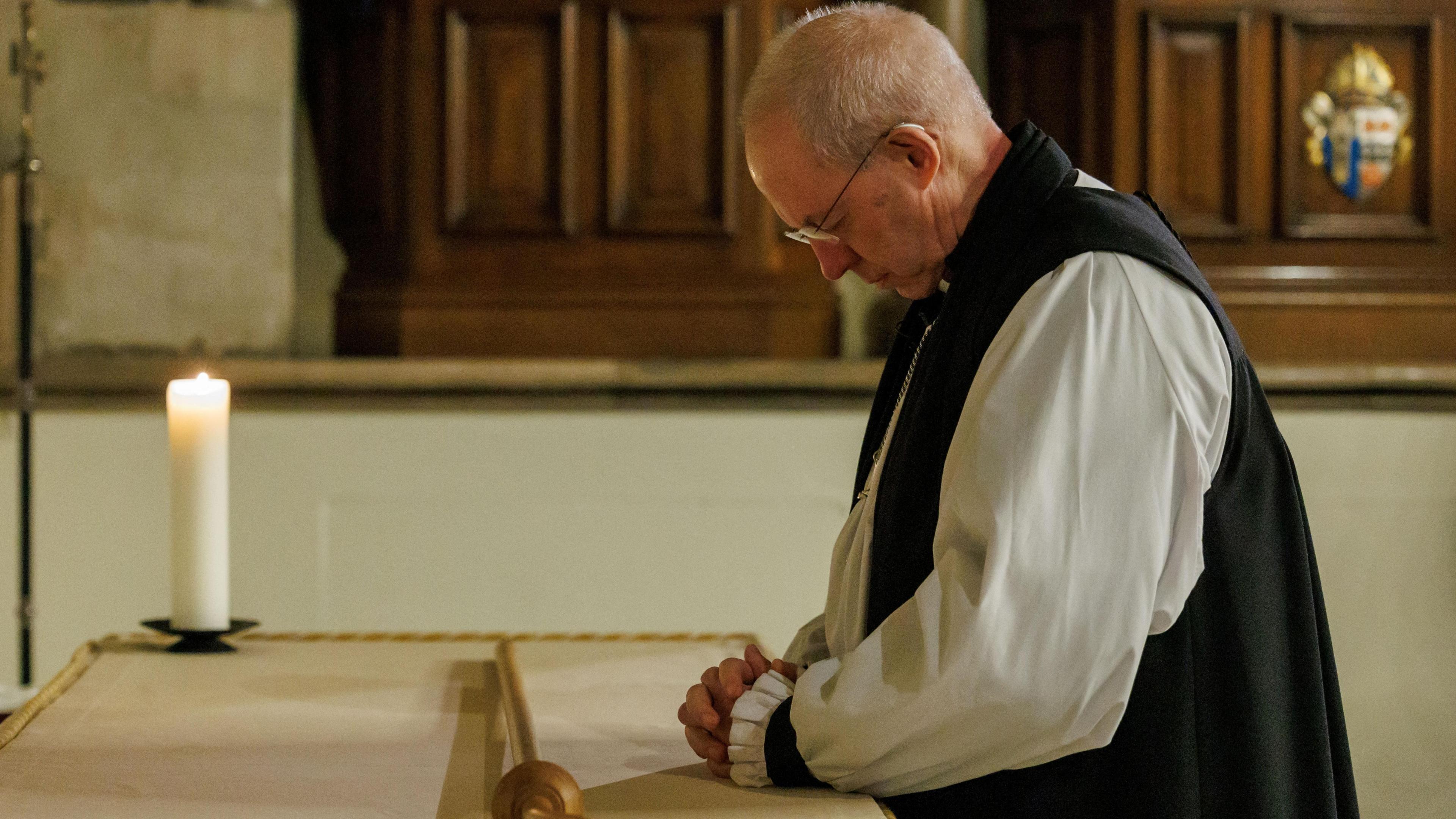
Justin Welby formally stepped down as Archbishop of Canterbury earlier this year
Sir Keir has welcomed Dame Sarah's appointment, saying: "I wish her every success and look forward to working together."
While, technically, the King is head of the Church of England, the person holding the role of Archbishop of Canterbury is the most senior bishop and is the spiritual leader of the Church and the worldwide Anglican Communion.
King Charles III has congratulated Dame Sarah on her new role, "which is of such importance in the UK and across the global Anglican Communion", Buckingham Palace said.
The Global Fellowship of Confessing Anglicans, which represents conservative views, has criticised the appointment, saying that although some will welcome it, "the majority of the Anglican Communion still believes that the Bible requires a male-only episcopacy".
She does not legally take on her new role until a confirmation of election in January, and an enthronement service comes later, after they have paid homage to the King.
Speaking from Canterbury Cathedral on Friday, she said that "in an age that craves certainty and tribalism, Anglicanism offers something quieter but stronger".
She promised to confront safeguarding failures which had "left a legacy of deep harm and mistrust", saying "we must all be willing to have light shone on our actions, regardless of our role in the Church".
Talking about the "horrific violence" of Thursday's attack on a synagogue in Manchester, she said "we are witnessing hatred that rises up through fractures across our communities".
She added: "We then as a Church have a responsibility to be a people who stand with the Jewish community against antisemitism in all its forms. Hatred and racism of any kind cannot be allowed to tear us apart."
'Hatred and racism cannot tear us apart', says new Archbishop of Canterbury
Married with two children, she spent over 35 years in the NHS, becoming the youngest-ever chief nursing officer for England in 1999.
Although she was volunteering in the Church at the time, it was just a few years later that she decided to become a priest and was quickly tasked with helping make reforms in the way the institution dealt with abuse.
In 2012 she became canon treasurer at Salisbury Cathedral before becoming Bishop of Crediton in the diocese of Exeter in 2015.
As Bishop of London she was seen as someone who used her experience as an NHS administrator to help modernise the diocese.
Asked by the BBC what she will bring to her new role, she said: "I have had experiences as a nurse leading complex organisations, as the government's chief nursing officer, and also a diocese that is very diverse in London. So I have been prepared for some of this, but recognise I can't do it alone. I need to do it with other colleagues."
Dame Sarah said she realised that "being the first woman is historic, and I often go to schools, and particularly the young women sit up and listen, and they don't want to be the Bishop of London or the Archbishop of Canterbury, but it does allow them to think there are possibilities for them to fulfil their dreams".
Perhaps the most urgent issue in her in-tray is still to chart a better path towards dealing with abuse and treating with more compassion those affected by it.
There has also been a decline in church attendance, though London has to some extent bucked that trend.
One of the areas she has been most outspoken about it is assisted dying - she is a vociferous opponent, as was her predecessor.
When legislation was passed in the Commons, she described it as "unworkable and unsafe and poses a risk to the most vulnerable people in our society".
One of her roles as Bishop of London was to chair a body trying to steer the Church's decision on whether to bless same-sex marriages.
She described the decision to finally allow priests to bless same-sex couples in 2023 as "a moment of hope for the Church".
Rowan Williams, a former archbishop, summarised her new role as requiring a "newspaper in one hand and a Bible in the other".
Dr Williams told the BBC "the expectation of having an opinion on everything is quite heavy."
Related topics
- Published12 November 2024
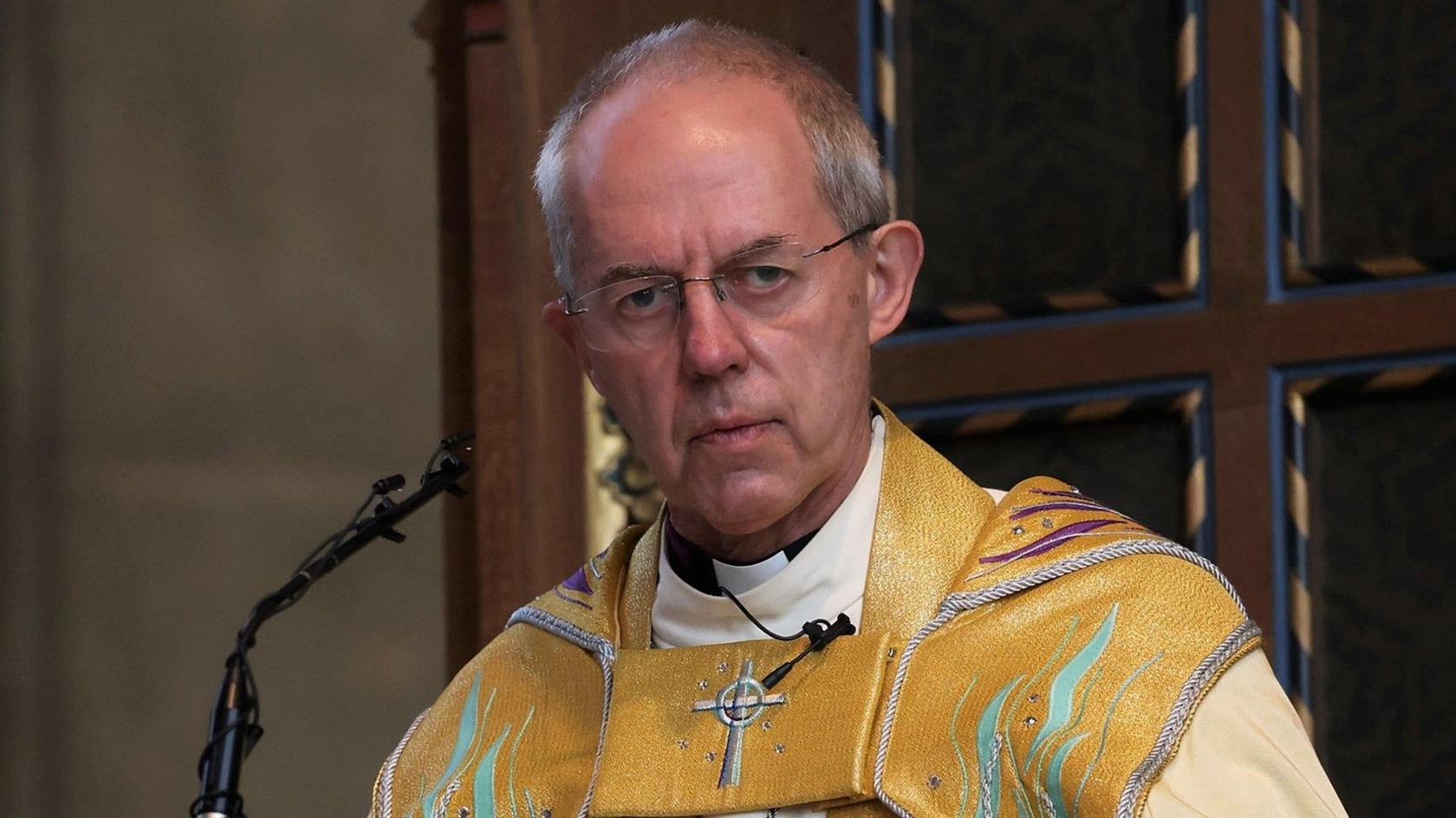
- Published12 May 2018
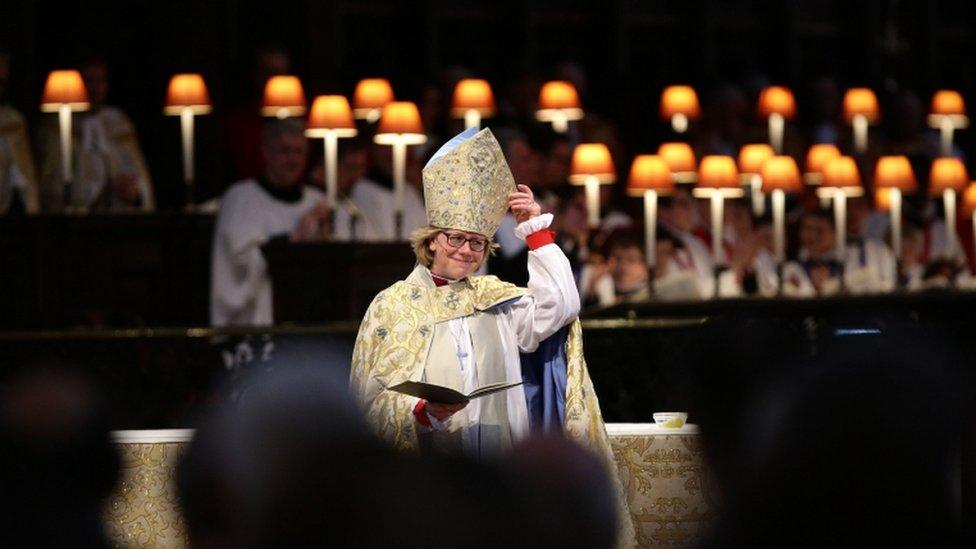
- Published12 November 2024
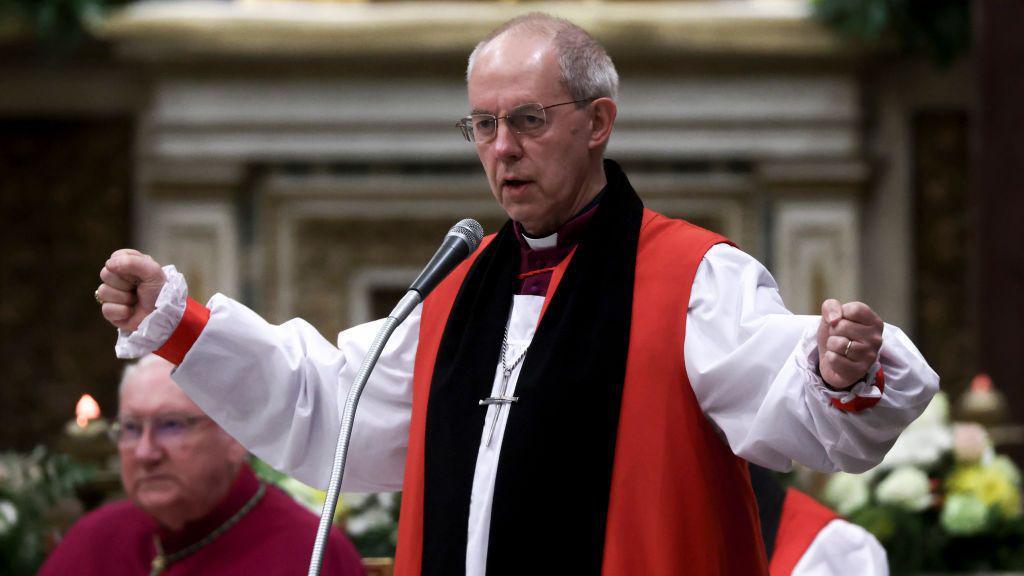
- Published3 October
